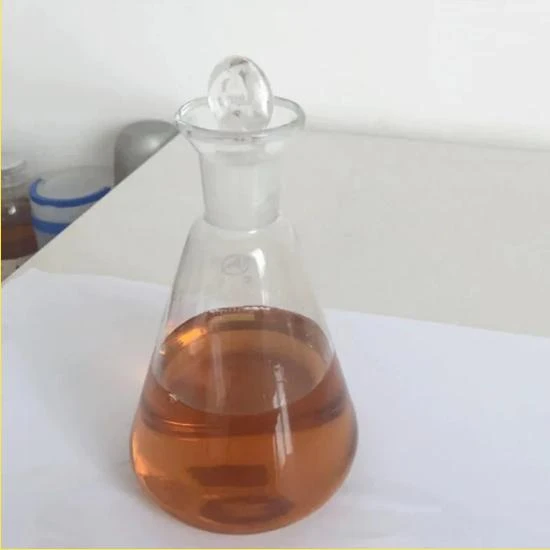
butyl rubber
Understanding Butyl Rubber Properties, Applications, and Advantages
Butyl rubber, also known as polyisobutylene, is a synthetic rubber that has become an essential material in various industries due to its unique properties. First synthesized in the 1930s, butyl rubber is characterized by its excellent impermeability to gases and low permeability to water, making it an ideal choice for applications that require airtightness and moisture resistance. This article will explore the properties, applications, and advantages of butyl rubber.
Properties of Butyl Rubber
Butyl rubber is a copolymer of isobutylene and a small amount of isoprene. This specific formulation gives it several key properties 1. Gas Permeability Butyl rubber has exceptional gas barrier properties. It is often used in applications where low permeability to gases is critical, such as in sealing materials and tire linings. 2. Electrical Insulation It offers excellent electrical insulation, making it suitable for use in electrical cables and other components. 3. Flexibility and Resilience Butyl rubber retains its flexibility even at low temperatures, which is important for products that will be exposed to a range of environmental conditions. 4. Chemical Resistance This rubber is less reactive with chemicals and aging agents compared to other types of rubber, contributing to its longevity and reliability in various applications. 5. Adhesion Properties Butyl rubber exhibits good adhesion to various substrates, which enhances its utility in adhesive formulations.
Applications of Butyl Rubber
Due to its advantageous properties, butyl rubber finds extensive applications across multiple industries
butyl rubber

1. Tire Manufacturing The automotive industry heavily relies on butyl rubber for inner tubes and tire liners. Its impermeability to air helps maintain tire pressure, leading to improved fuel efficiency and reduced tire wear. 2. Adhesives and Sealants Butyl rubber is widely used in industrial adhesives and sealants. Its strong bonding capabilities make it ideal for construction and automotive applications, including HVAC systems and roofing materials. 3. Medical Applications In the medical field, butyl rubber is utilized for various items, including stoppers for vials and other pharmaceutical packaging, due to its inert nature and lack of reactivity with medications. 4. Consumer Goods Butyl rubber is present in products such as sporting goods, toys, and household items. Its durability, flexibility, and resistance to environmental factors contribute to the longevity of these products. 5. Inflatable Products Butyl rubber is commonly used in inflatables, such as pools, boats, and air mattresses, where resistance to air loss is a critical requirement.
Advantages of Using Butyl Rubber
The use of butyl rubber offers several advantages over other materials - Longevity Its durability and resistance to wear and aging lead to longer-lasting products, reducing the need for frequent replacements. - Safety Butyl rubber’s low toxicity and non-reactivity with most substances make it a safe choice for use in consumer and medical products. - Versatility Its adaptability means it can be tailored to a wide range of applications, with formulations available for specific needs, such as increased flexibility or enhanced adhesive properties.
Conclusion
In summary, butyl rubber is a crucial material that underpins numerous industries, thanks to its remarkable properties and versatility. From tires that keep vehicles moving efficiently to medical applications that ensure safety and efficacy, butyl rubber plays a significant role in our daily lives. Understanding its properties and applications can help industries make informed decisions about material selection, ultimately leading to better product performance and greater consumer satisfaction. As technology advances and new applications are discovered, butyl rubber's relevance in modern manufacturing and product design is set to continue growing.
-
Sodium Dichloroisocyanurate Safety Handling ProtocolsNewsJul.29,2025
-
Mining Chemicals for Copper Extraction Processes GuideNewsJul.29,2025
-
Fertilizer for Sale Shipping and Storage TipsNewsJul.29,2025
-
Dimethyl Disulfide as Sulfurizing AgentNewsJul.29,2025
-
Benzotriazole Safety Data Handling and Storage GuidelinesNewsJul.29,2025
-
Ammonium Bicarbonate Safety Handling Storage GuidelinesNewsJul.29,2025
-
The Transformative Role Of Trichloroisocyanuric Acid in Water TreatmentNewsJul.23,2025
Hebei Tenger Chemical Technology Co., Ltd. focuses on the chemical industry and is committed to the export service of chemical raw materials.
-

view more DiethanolisopropanolamineIn the ever-growing field of chemical solutions, diethanolisopropanolamine (DEIPA) stands out as a versatile and important compound. Due to its unique chemical structure and properties, DEIPA is of interest to various industries including construction, personal care, and agriculture. -

view more TriisopropanolamineTriisopropanolamine (TIPA) alkanol amine substance, is a kind of alcohol amine compound with amino and alcohol hydroxyl, and because of its molecules contains both amino and hydroxyl. -

view more Tetramethyl Thiuram DisulfideTetramethyl thiuram disulfide, also known as TMTD, is a white to light-yellow powder with a distinct sulfur-like odor. It is soluble in organic solvents such as benzene, acetone, and ethyl acetate, making it highly versatile for use in different formulations. TMTD is known for its excellent vulcanization acceleration properties, which makes it a key ingredient in the production of rubber products. Additionally, it acts as an effective fungicide and bactericide, making it valuable in agricultural applications. Its high purity and stability ensure consistent performance, making it a preferred choice for manufacturers across various industries.











